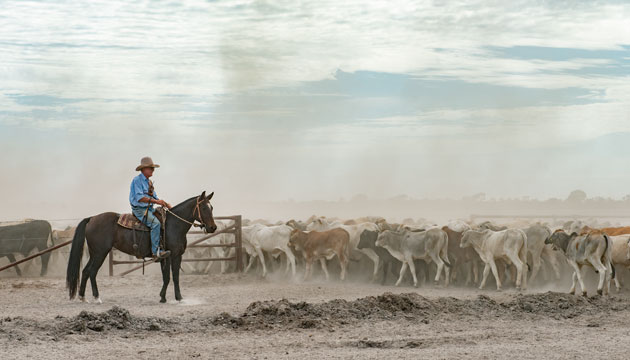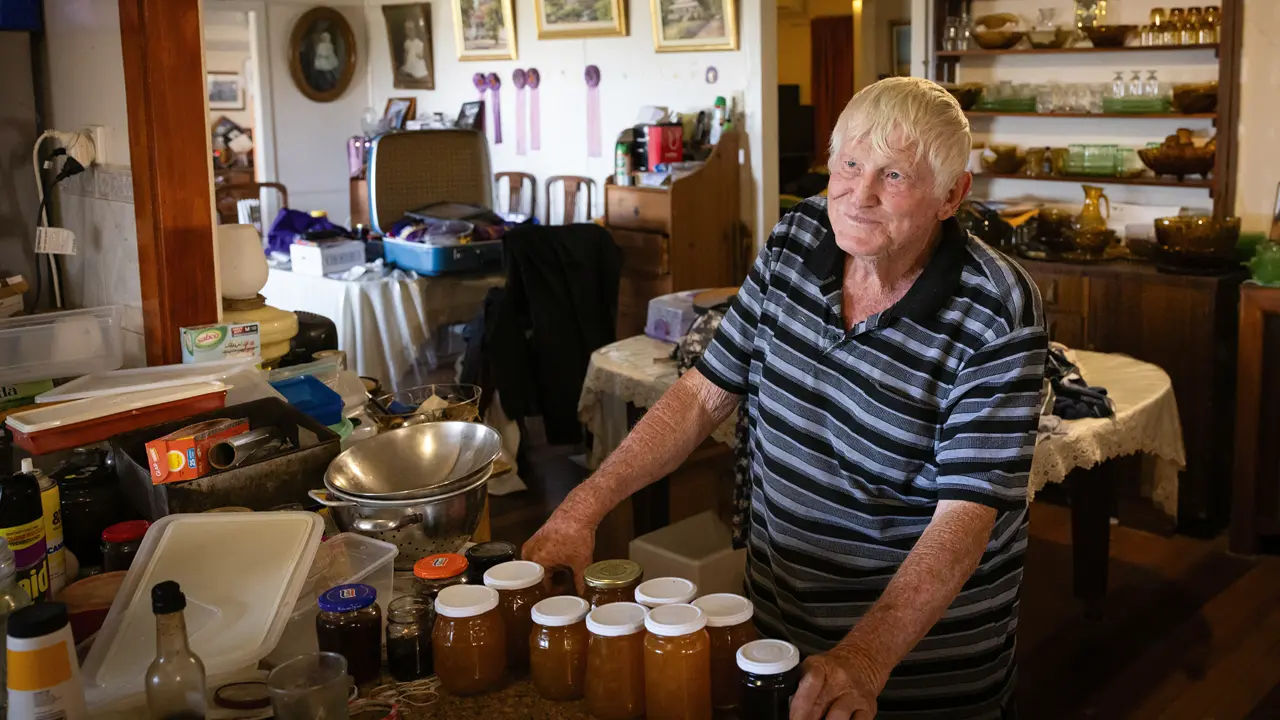Newcastle Waters and adjoining Ucharonidge make up one of the largest pastoral properties in the country.
Story and photos Ken Eastwood
As Cyclone Trevor battered the Gulf Country coastline in late March, the police contacted Newcastle Waters station, 250 kilometres north of Tennant Creek, warning workers the storm was on its way. New station managers Marcus and Ally Doumany – just two months into the job – tied everything down, gave most of the 45 staff the day off, and waited for the much-needed rain the cyclone would bring. It had been one of the driest summers on record, with only a fifth of the long-term average of 790 millimetres received, and rain was desperately needed for the long dry season ahead.
But Trevor spent his fury elsewhere, petering out before reaching them on the western side of the Barkly. They received a paltry 2mm on parts of the 10,331-square-kilometre station, and two-fifths of bugger-all on the rest. “That’s when we really hit the go button,” Marcus says. The huge Consolidated Pastoral Company (CPC) property and its adjoining 2455sq km station Ucharonidge can carry almost 80,000 head, but from their first week at the station – most of which Marcus spent in a chopper looking over the place – Marcus and Ally and their CPC superiors had decided they needed to wean and get off as many of the cattle as quickly as they could. Black-soil paddocks that should have been flush with Mitchell and Flinders grasses were bare. Lake Woods – a 1000sq km beauty that is one of the largest freshwater resources in the country – was completely dry for the first time in seven years.
By the beginning of May, the team at Newcastle Waters had taken off 40,000 head, with up to 10 road trains arriving every day to take more. “We will have trucked 7000 more in seven days this week,” Marcus says.
“We enjoy a challenge and that’s what we got,” Ally, 29, says. “For the first month we barely even made eye contact with each other.”
This story excerpt is from Issue #125
Outback Magazine: June/July 2019










